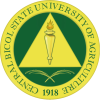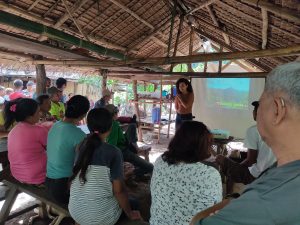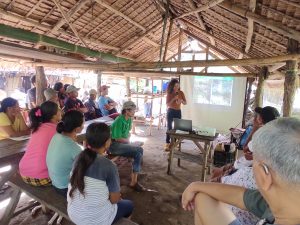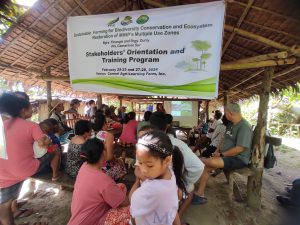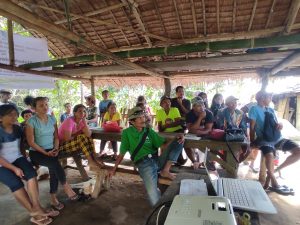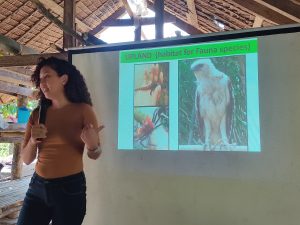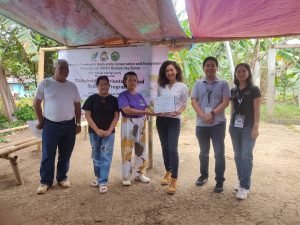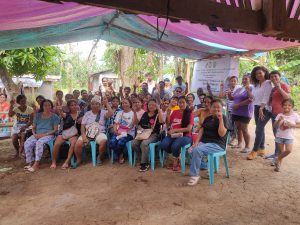In an aspiring move towards promoting sustainable farming practices, Carmel Agri-Learning Farm, Inc., in collaboration with the Protected Area Management Office (PAMO) and the Central Bicol State University of Agriculture (CBSUA), delivered learning sessions on February 27, 2024, in Bongcao, Curry and March 5, 2024, in Upper Lampog, Caroyroroyan both in Pili, Camarines Sur.
This innovative program is dubbed “Sustainable Farming for Biodiversity Conservation and Ecosystem Restoration of MINP’s Multiple Use Zone.” This initiative, aimed at the tribal communities of Bongcao and Upper Lampog, Tinangis, seeks to demonstrate the power of sustainable agriculture in conserving biodiversity and restoring ecosystems within the Mount Isarog National Park’s (MINP) Multiple Use Zone.
These sessions were graced by notable figures such as PAMO officers Marco Navarozza, Marion Ramirez, Efren Fragata, the chairman of the Provincial Agriculture and Fisheries Council of Camarines Sur, Roy Nelson Layosa, the president of the Goat Raisers Association, and Carmelita Cervantes, the owner of Carmel Agri-Learning Farm, Inc.
Coinciding with the World Wildlife Day celebrations, Marco Navarozza took the opportunity to discuss the significance of wildlife and its critical role in maintaining a balanced ecosystem. The discussions also covered the sustainable management of natural resources and livelihood to foster a greater understanding among the participants.
Adding to the program’s richness, Ma’am Edlynne Kaith Manlangit, the Dean of the College of Agriculture and Natural Resources, shared insights on the importance of conserving freshwater, coastal, marine environments, and mangroves. Her presentation highlighted the pressing issues of global warming and climate change, outlining the need for proactive measures in environmental conservation.
In alignment with the global call for sustainability, the initiative also directly contributes to SDG 14: Life Below Water. Since Mount Isarog’s watershed drains into rivers and coastal ecosystems that feed into larger marine environments, the program’s emphasis on sustainable upland farming plays a vital role in protecting freshwater and downstream marine biodiversity. By reducing soil erosion, preventing chemical runoff, and promoting environmentally sound agricultural practices, the initiative helps safeguard the health of coastal and marine habitats connected to the MINP landscape.
The initiative underscores the potential of agroforestry and permaculture in achieving sustainable upland development. Through these practices, the program aims to support creating businesses that cater to community needs while ensuring the conservation of natural resources. | 𝘙𝘦𝘱𝘰𝘳𝘵 𝘢𝘯𝘥 𝘱𝘩𝘰𝘵𝘰𝘴 𝘧𝘳𝘰𝘮 𝘔𝘴. 𝘙𝘪𝘢𝘯𝘦 𝘈𝘣𝘪𝘨𝘢𝘪𝘭 𝘐𝘮𝘱𝘦𝘳𝘪𝘢𝘭, 𝘌𝘚𝘋 𝘚𝘵𝘢𝘧𝘧

